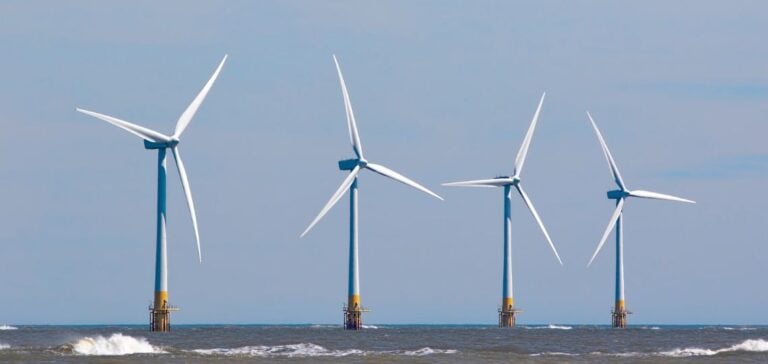France has announced a significant increase in its investment in offshore wind power for 2024. The government plans to triple current installed capacity from 3.6 GW to 12 GW by 2030. This effort is an essential part of the national energy strategy aimed at diversifying energy sources and reducing dependence on fossil fuels.
Investment strategy
To achieve this objective, public and private investments of over 10 billion euros are planned. Recent invitations to tender for the construction of new offshore wind farms target strategic areas, notably off the coasts of Normandy and Brittany. These regions offer strong wind potential, which is crucial for maximizing energy production.
The French government has already awarded several contracts to major companies in the sector, including Siemens Gamesa and General Electric, for the supply and installation of the turbines. These companies are chosen for their technological expertise and their ability to provide robust, reliable solutions adapted to maritime conditions.
Impact on the energy market
The expansion of offshore wind power in France will play a key role in the evolution of the energy market. By increasing its production of renewable energy, France aims to reduce its imports of fossil fuels and stabilize energy costs over the long term. In addition, the increase in installed capacity should enable France to strengthen its position in the European energy market, by becoming a net exporter of renewable electricity.
Current and future offshore wind projects should also have an impact on electricity prices, with a possible reduction in costs for consumers thanks to increased and more stable production.
Challenges and opportunities
However, this expansion is not without its challenges. Financing these projects requires considerable capital mobilization and close coordination between the public and private sectors. What’s more, integrating this new capacity into the national grid will require significant improvements to transmission infrastructure.
Despite these challenges, opportunities abound. Increased offshore wind capacity could boost the local economy, particularly in the regions where the wind farms are built, by creating jobs and attracting additional investment.
France is making major strategic investments in offshore wind power, with ambitious targets for 2030. These investments should strengthen the country’s position in the renewable energy market and deliver substantial economic and energy benefits. The success of this initiative will depend on the country’s ability to overcome financial and infrastructural challenges, while capitalizing on the opportunities offered by this energy transition.






















